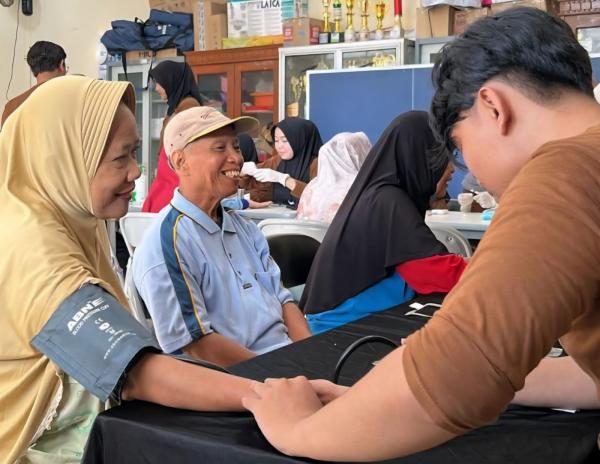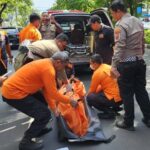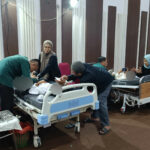High blood pressure or hypertension remains a hidden threat in urban communities, including Surabaya. Known as a silent killer, this condition often shows no symptoms but can have fatal consequences, such as increasing the risk of stroke.
In response to this growing concern, the Faculty of Health Sciences at Muhammadiyah University of Surabaya, along with lecturers and students, took concrete action through a hypertension support program targeting the area with the highest cases: Gubeng District.
The program ran for four weeks, from December 2024 to January 2025, involving 150 hypertension patients. Its primary goal was to improve self-efficacy among patients and their families in managing serious complications like stroke.
“Many patients rely solely on medication without changing their lifestyle. However, behavioral change is crucial,” said Ira Purnamasari, a Nursing lecturer and program team leader.
The initiative also collaborated with the Aisyiyah Branch Health Council (PCA) of Gubeng as a strategic partner. Thirty Aisyiyah volunteers were specially trained to serve as facilitators, providing door-to-door assistance to patients.
Through educational materials like posters, leaflets, direct discussions, and Q&A sessions at patients’ homes, the volunteers delivered interactive information on hypertension, healthy living, and the importance of family support.
“What we did wasn’t just education—we built emotional connections. This made patients feel they weren’t alone,” said Firman, a nursing student involved in the program.
Post-program evaluations showed significant results: Good knowledge about hypertension and stroke rose from 24.7% to 78.7%, no participants remained in the low-knowledge category, and patient self-efficacy improved from 60.7% (moderate) to 74.7% (good).
“Patients with high self-efficacy are more consistent in taking medication, maintaining a healthy diet, and staying active,” added Ira.
The program also promoted the CERDIK educational approach: Regular health checks, Eliminating cigarette smoke, Regular physical activity, Balanced diet, Adequate rest, and Stress management.
Beyond that, family involvement was equally vital. They didn’t just remind patients to take medication but also became partners in lifestyle changes.
“Before, we just told our mother to take her pills. Now, we also watch our diet, exercise together, and encourage each other,” shared one patient’s family member.
With a population of 132,000, including over 33,000 hypertension patients, Gubeng was an ideal location for community-based health interventions. UM Surabaya hopes this program’s success can serve as a national model.
“We want this program to be replicable. Psychosocial support isn’t just about information—it’s about hope and human connection,” emphasized Ira.
The program was supported by the Muhammadiyah Research Grant Batch VIII and UM Surabaya’s Research and Community Service Institute (LPPM), demonstrating the university’s commitment to improving public health in Indonesia.





